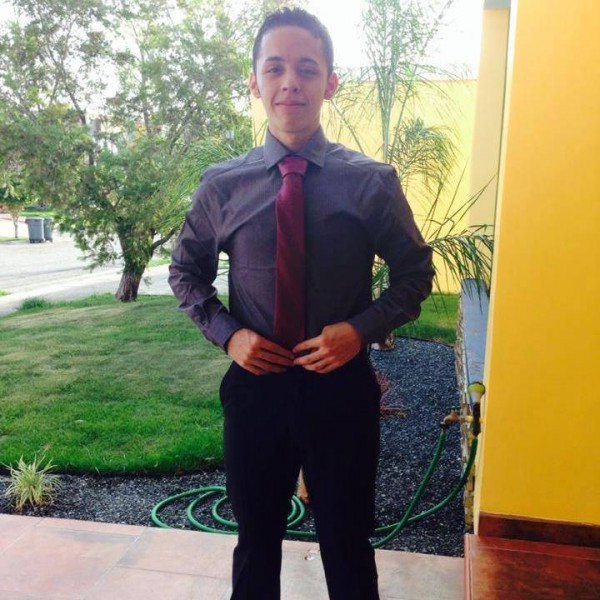
Interview with John, a full-stack web developer who works remotely
How did you get started with remote work?
I was a freshly graduated young man and I had a choice to make, I could go work a regular 9 to 5 job or go into freelancing which was something I had learned about a few months before graduating as I was planning for the future.
What really made me decide to go into freelancing was that my dad has worked a regular 9 to ... random exit times sometimes as late as 12 AM and he missed out on a lot with his family, I know he missed out on a lot of us growing up because he had to work to provide for us.
There's also the fact that to me it seems like not everyone appreciates what you do in a regular job.
Recognizing this and not wanting this to be my norm, I definitely don't want to miss out on my kids life when I have my own, I went into freelancing, super scared if it would work or not but 3 years later here we are!
I think the most important thing was I was reasonable with my pricing.
I was just recently graduated and starting out in the professional space so I started by charging $10/hour or sometimes even $8/hr depending on the job.
I see a ton of new freelancer make the mistake of charging $15 or more from the jump without 0 reputation to back up that value. You can't expect to be paid what you want without having a way of proving that value in some way.
If you didn't work at a company before or have an impressive portfolio you won't get any clients at $15 or more per hour. Reputation first, then up your prices.
The second thing I did that I think was super important with clients was I delivered days before the deadline, this made the client happy, likelier to work with me in the future and they left a good review praising this which is a good motivator for future clients as it shows I'm a dedicated worker.
Read 114 answers from other remote workers
What are you working on?
Currently I am working with the folks over at OpenSea, the first marketplace for cryptogoods as a front-end developer! I still think it's crazy I'm working with, what to me are, the big boys of the industry. I mean they're backed by YCombinator among others!
I am one of the main front-end developers so I am tasked with implementing new designs and features for the site and integrating the front end with the back end across the site. I've also pitched strategies for customer conversion and retention that have been implemented by the team and have, so far, shown promising returns!
Read 107 answers from other remote workers
What's your typical work routine?
Well thanks to the beauty of freelancing I set my own hours and since I've been a night owl for as long as I can remember, I wake up at around mid day, work till 6-8pm depending on workload for the day. Then I decompress by playing some games or watching TV and then I go to sleep and rinse and repeat!
There's flexibility around your routine, that's the magic of freelancing, but the three non-negotiable factors are sleep well, eat well and exercise.
This last one has proven invaluable to me as I've been able to come up with new ideas for things I'm working on or solving existing problems while working out and I get to stay healthy!
Read 92 answers from other remote workers
Do you have a dedicated space to work?
I do have a dedicated space to work, it's my room.
I have an L shaped desk so I can fit my dual monitors and Mac for when I'm working. I develop on my PC and use my Mac to test anything I need to on macOS.
I have some simple blinds so I can let some light in when I need it to feel refreshed.
Finally I have an orthopedic chair because your back is important especially when you sit for so many hours.
Read 93 answers from other remote workers
How do you manage having too much or not enough work?
I do have multiple clients sometimes , I actually just wrapped up working for a client a few weeks ago.
The way I manage too much work is I wake up early and I divide my work hours between the clients.
I usually have no more than two so I can divide 5 hours to each for a total of 10. This does require me to work on the weekends but I'm ok with that.
In regards to too little work always keep searching for your next client and make sure to save up so you have enough money to get you through the slow times.
Read 18 answers from other remote workers
What tools do you use to stay productive?
The tools I use for remote work are bonsai for managing contracts for outside of Upwork, Trello for task management, Toggl for time tracking and VS Code for development work.
Read 108 answers from other remote workers
How do you stay on task?
Have a Trello board, if your employers don't have one for you, make one yourself. It will really help you stay on track. Don't open any type of social media or news site.
Sleep a decent amount, you won't be productive while sleep deprived, I would know, I tried.
Read 100 answers from other remote workers
What do you like about remote work?
I love being able to set my own hours, being my own boss, not having to worry about commuting, working comfortably and you know taking meetings in pajamas.
Read 106 answers from other remote workers
What do you not like about remote work?
The only thing I don't like is the volatility, you can have work one day, then none the next.
Read 103 answers from other remote workers
What did we forget to ask John Caraballo?
At RemoteHabits we're always trying to improve our interviews, what question should we have asked John Caraballo?
Biography
John Caraballo
John is a full-stack web developer specializing in ReactJS, React Native and GraphQL, among others—find out more about his work on Upwork or by emailing.
Work remotely? Share your story on RemoteHabits!
Want to be interviewed? If you have a remote position, head over to the interview me page!
Looking for a remote job?
RemoteHabits Jobs has everything you need to find your next great remote work position!
Related Interviews
Interview with John, a web developer who works from home
John is a web developer running a mini-agency inside a larger WordPress agency - learn how calendar management and establishing boundaries have helped him boost his productivity.
Interview with Grainne, a professional writer and content marketing manager who works remotely
Grainne's freelance work led to her landing a remote work job—see how she manages distractions and balances her work with Buckets.co and her clients.
Interview with Dane, a freelance writer and author with 7 published books
Dane is a freelance writer and author who works remotely, and balances client work with writing his own books.


